In each capacitance C1 is 6.0μF, and each capacitance C2 is 4.0μF.
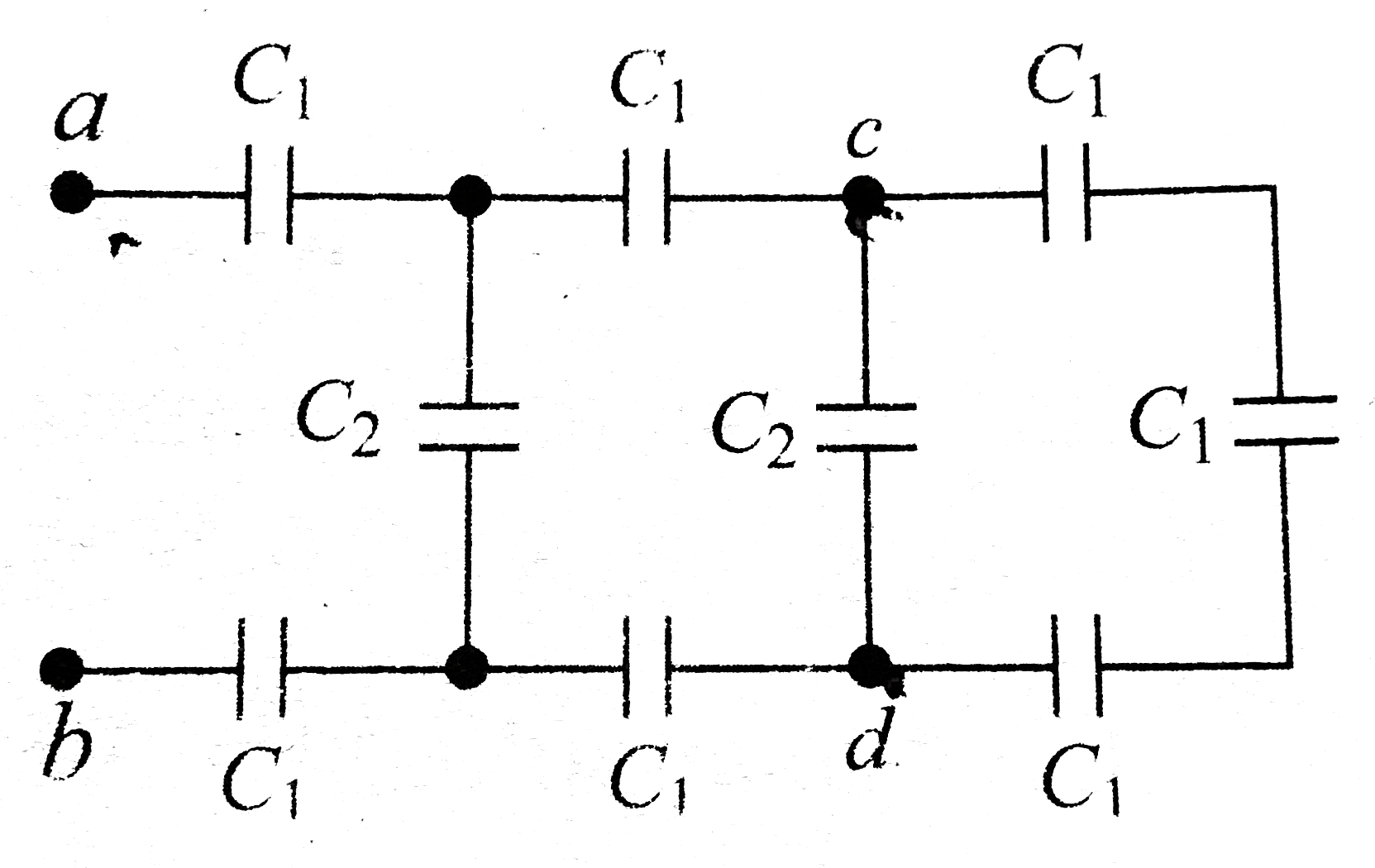 .
.
The charge on C1 nearest to a when Vab=420V is.
840μC
560μC
600μC
320μC
The correct Answer is:A
Reduction of the farthest right leg yields
C=(16.0μF+16.0μF+16.0μF)−1=20.0μF=C13
It combines in parallel with C2,i.e.,
C=4.0μF+2.0μF=6.0μF=C1
So the next reduction is the same as the second, leaving 3C1's, in series.
So Ceq=2.0μF=C1/3. For the three capacitors nearest to points a and b:
QC1=CeqV=(2.0×10−6F)(420V)=8.4×10−4C
Vcd=13(4203V)=46.7V.
By symmetry, the total voltage drop over the equivalent capacitance of the part of the circuit from the junctions betweenc and d is (420/3)V and the equivalent capacitance is that of one of those capacitors, i.e., 1/3 of 420/3V.
Topper's Solved these Questions
- CAPACITOR AND CAPACITANCEBOOK - CENGAGE PHYSICS ENGLISHCHAPTER - CAPACITOR AND CAPACITANCEEXERCISE - Integer
5 Videos
- CAPACITOR AND CAPACITANCEBOOK - CENGAGE PHYSICS ENGLISHCHAPTER - CAPACITOR AND CAPACITANCEEXERCISE - Multile Correct
11 Videos
- ATOMIC PHYSICSBOOK - CENGAGE PHYSICS ENGLISHCHAPTER - ATOMIC PHYSICSEXERCISE - ddp.4.3
15 Videos
- CENGAGE PHYSICS DPPBOOK - CENGAGE PHYSICS ENGLISHCHAPTER - CENGAGE PHYSICS DPPEXERCISE - subjective type
51 Videos
Similar Questions
In each capacitance C1is6.0μF, and each capacitance C2 is 4.0μF.
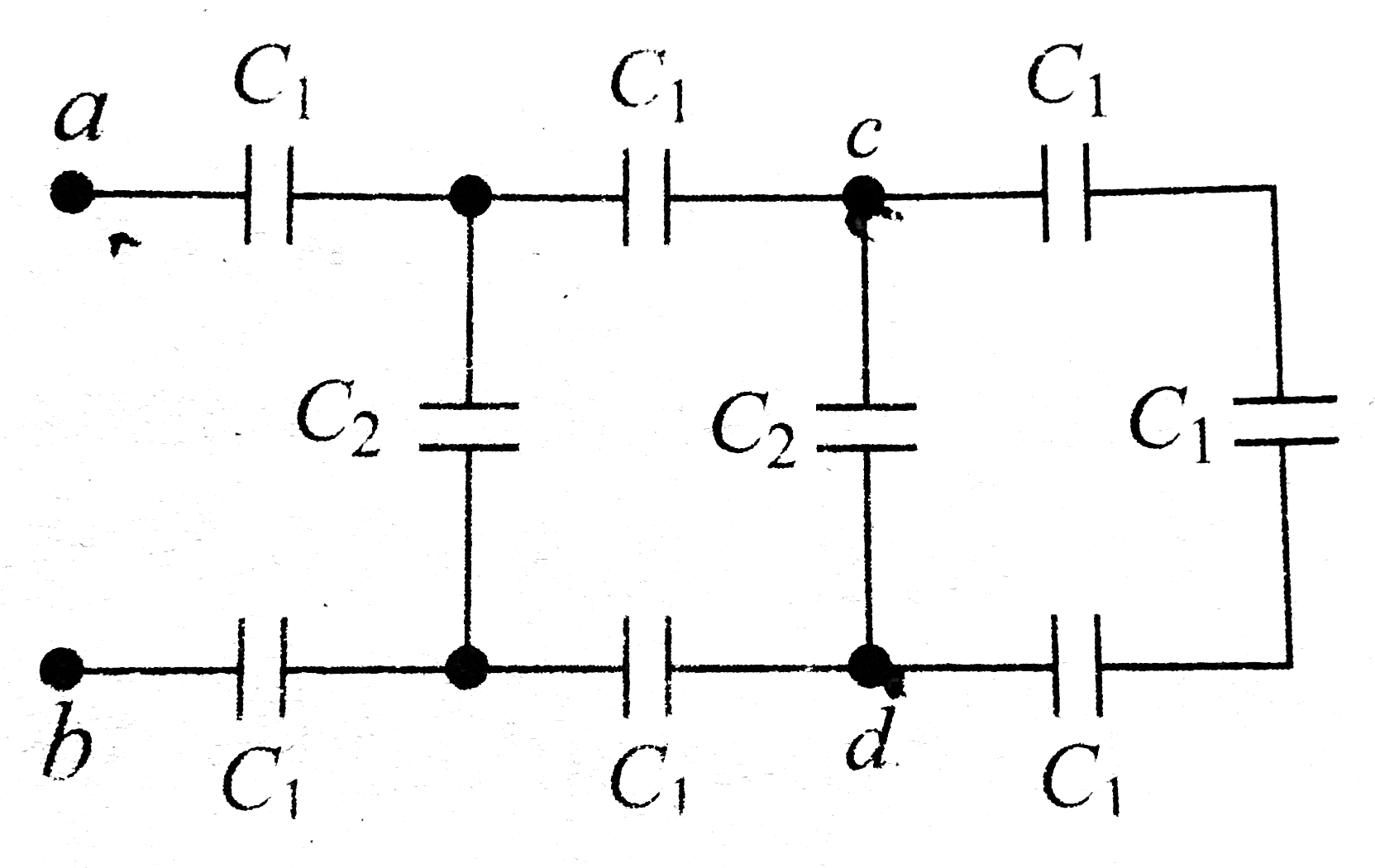 .
.
With 420V across a and b the value of Vc−Vd is.
View SolutionIn each capacitance C1 is 6.0μF, and each capacitance C2 is 4.0μF.
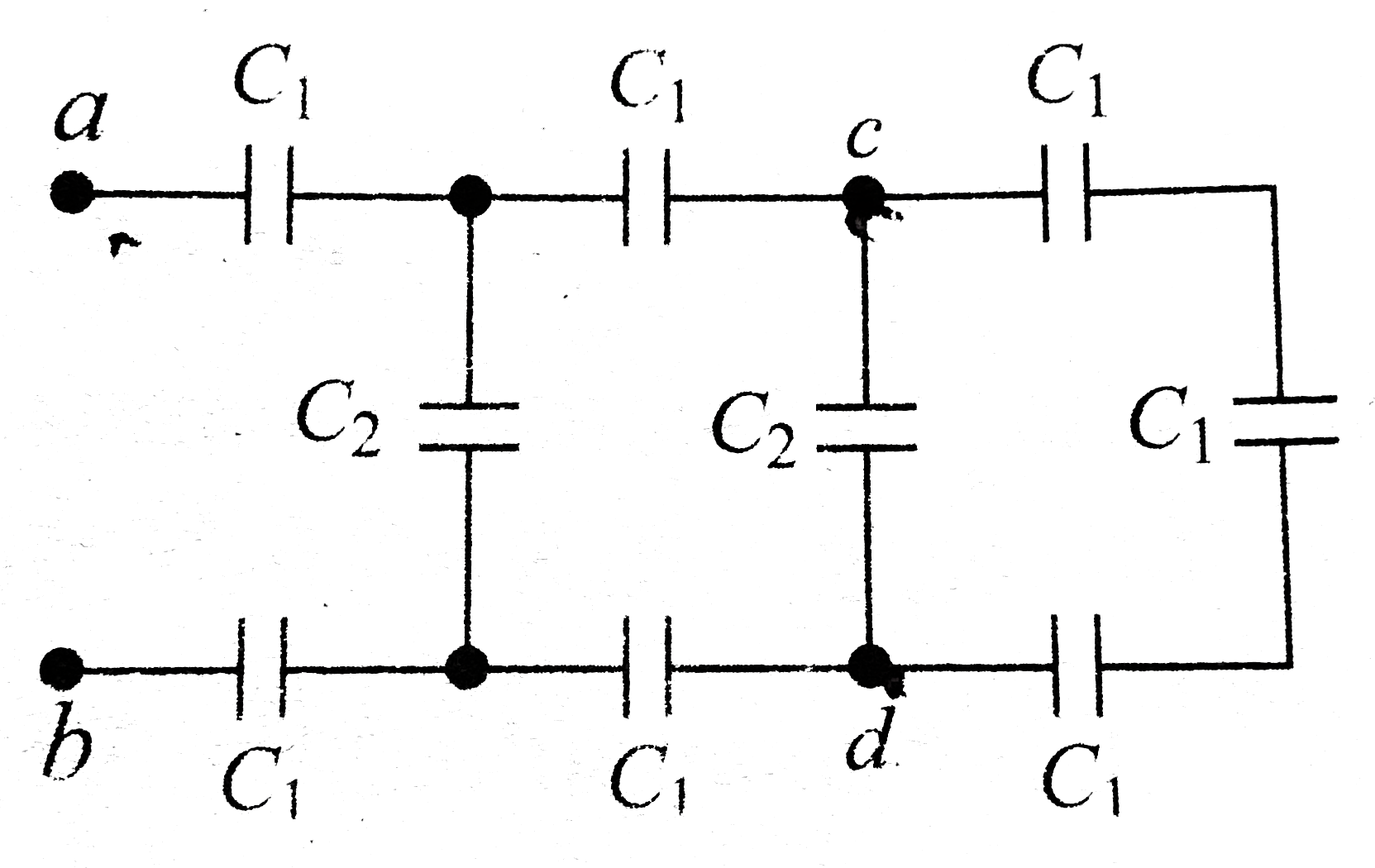 .
.
The equivalent capacitance of the netwok between ponts a and b is.
View SolutionEach capacitance shown in is in μF. Find the charge on 6μF.
 .
.
View SolutionA capacitor of capacity C1=1μF is charged to a potential of 100 V. The charging battery is then removed and it is connected to another capacitor of capacity C2=2μF. One plate of C2 is earthed as shown in figure. The charges on C1andC2 in steady state will be

View SolutionIn the arrangement of the capacitor shown in the figure, each C1 capacitor has capacitance of 3μF and each C2 capacitor has capacitance of 2μF then,
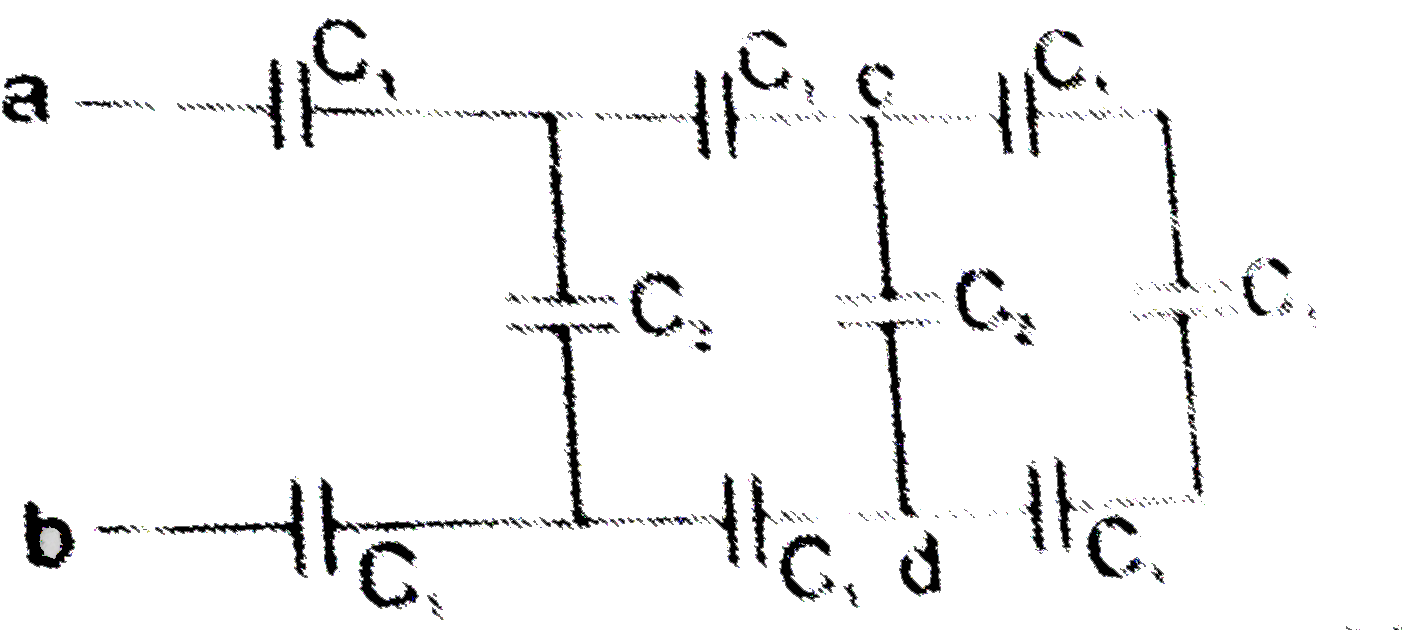
(ii) If Vab=900V, the charge on each capacitor nearest to the points 'a' and 'b' is :
View SolutionA capaitor of capacitance C1=1.0μF withstands teh maximum voltage V1=6.0kV while a capacitor of capacitance Cs=2.0μF, the maximum voltage Vs=4.0kV. What voltage will the system of these two capacitors withsatand if they are connected in sereis ?
View SolutionA capacitor C1 of capacitance 1μF and a capacitor C2 of capacitance 2μF are separately charged by a common battery for a long time. The two capacitors are then separately discharged through equal resistors. Both the discharge circuits are connected at t=0.
View SolutionCapacitance of a conductor is 1μF. What charge is required to raise its potential to 100V?
View SolutionIn the circuit shown , the batteries have emf E1=E2=1V,E3=2.5V, and the resistance R1=10Ω,R2=20Ω, Capacitance C=10μF. The charge on the left plate of the charge on the left plate of the capacitor C at steady state is
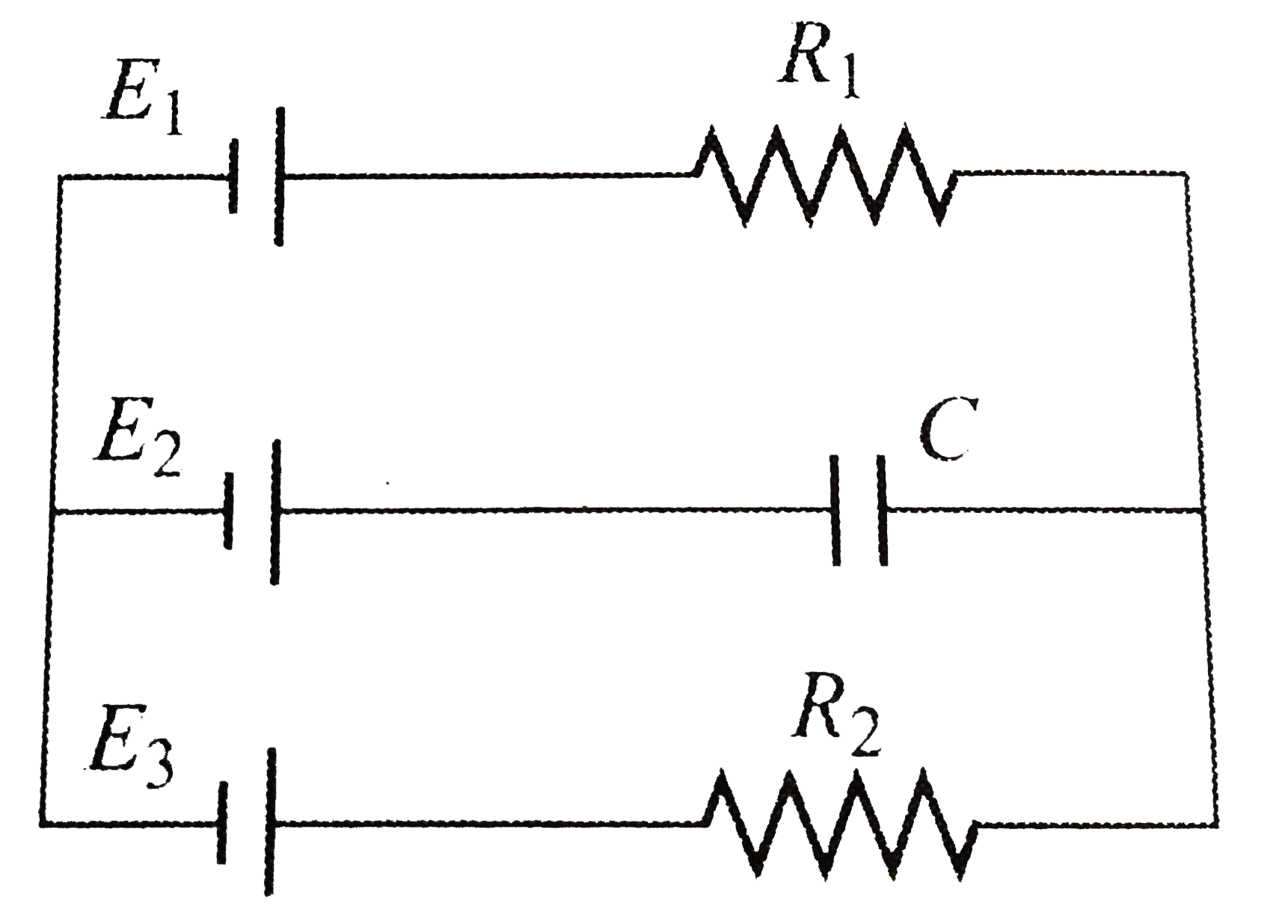
View SolutionIn the given network capacitance, C1=10μF,C2=5μF and C3=4μF. What is the resultant capacitance between A and B?
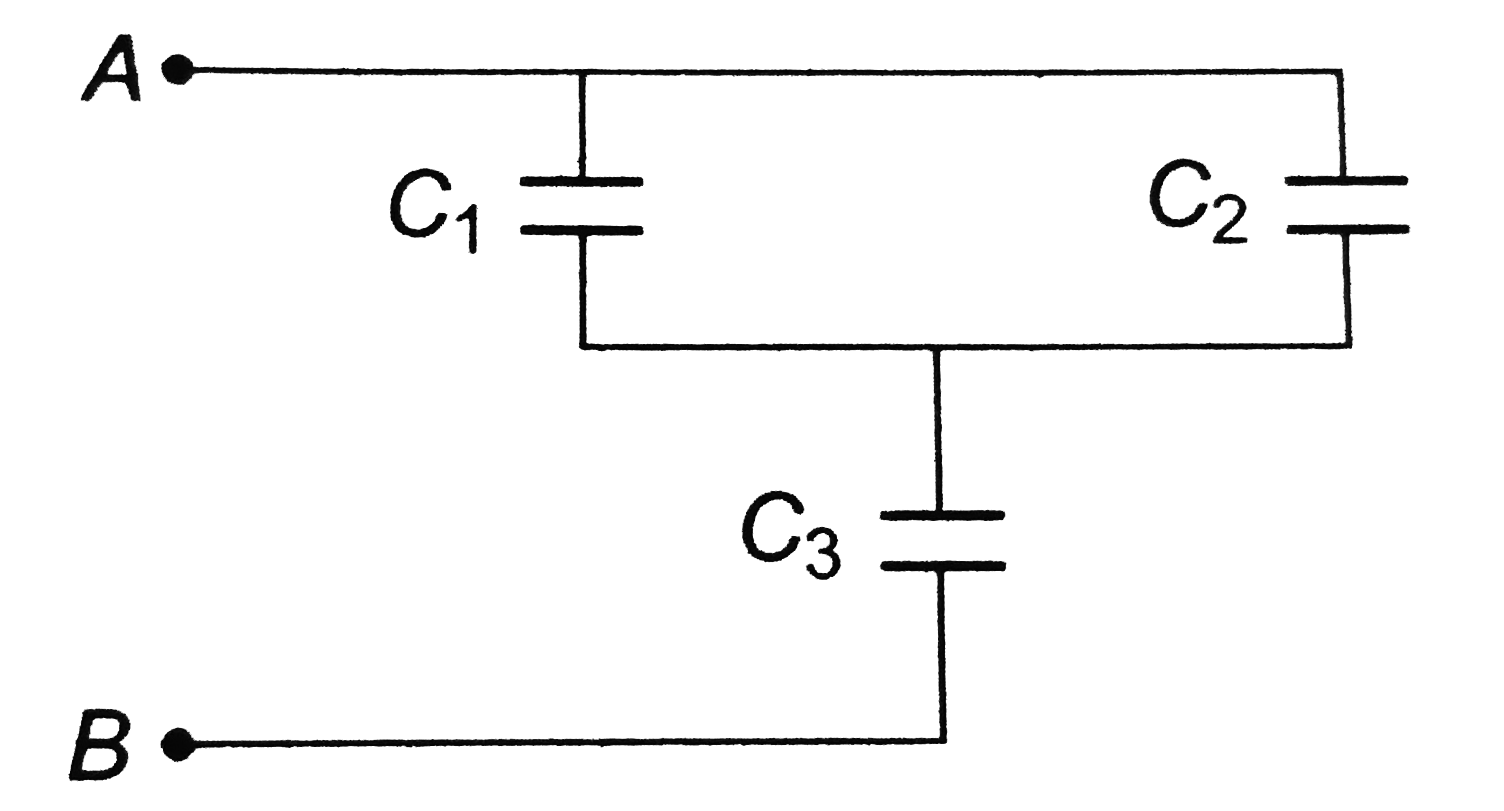
View Solution

